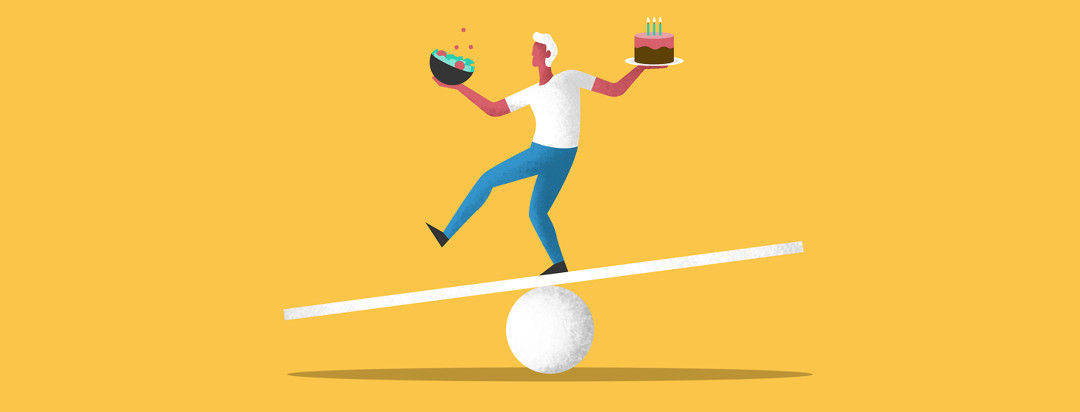Balancing Good Health and a Good Life
I believe there is a sweet spot regarding being healthy and enjoying life. There is a way to balance pleasure and health. And it's worth remembering that illness will come for all of us one day: it's not a matter of if but when.
Many people seem to base daily choices on the idea that illness can be avoided if one just chooses the right foods. And many bladder cancer patients seem to expend enormous energy trying to identify what they did "wrong." This makes me sad and, I think, deprives patients of enjoying what is right and good in their lives despite cancer.
Reassess dietary choices but avoid extremes
A bladder cancer diagnosis often drives patients and caregivers to reassess every dietary choice with a critical eye. I would argue that assessment is sometimes too critical.
Certainly, if a person has had a terrible diet leading up to the diagnosis-high in processed foods, for instance-it is wise from a general well-being perspective to add more whole foods. But people often get carried away. As Michael Pollan, the food writer, wisely noted about humans in his book "In Defense of Food:" "….what other animal needs professional help in deciding what it should eat?"
Going to extremes
But I have seen people go to extremes, adopting raw or juicing "detox" diets, convinced these will entirely change their lives and health. Some people add a wide range of supplements to their diet or they eliminate all alcohol and chocolate. I've seen caregivers to terminally ill cancer patients force green smoothies on them or insist that a patient quit smoking during what are very likely the last months of his or her life.
Is smoking bad for health? Yes. But when a person is terminally ill and smoking has been his or her comfort for decades, is giving it up going to change the prognosis? Is it going to make the patient happier? Probably "no" to both. In fact, I think one of the worst cruelties is to deny terminally ill patients the foods and other vices they have historically enjoyed with the idea that it might change the outcome.
Illness is a matter of when not if
Certainly, these are highly individualized choices. And certainly, for an early-stage patient in remission, adopting new habits could very well determine whether he or she has a recurrence of cancer. And if a terminally ill cancer patient is happy giving up certain things, then go for it. But when we start imposing ideas and rules on patients, we are likely adding to their already heavy burden.
But aren't we all dying every day? Aren't we all one day closer to the end of our lives? The terminally ill are just getting there faster. And so, if we delight in a piece of chocolate or a glass of wine every day, will we make our lives better by eliminating those? Will we add a day to our lives for each day we say no to those pleasures? Would we want those extra days in which we are denied such goodies?
How do you want to live now-whether you are sick or well? If your diet and habits are seriously unhealthy and your health is still relatively OK, yes, big changes might help you. But the reality is that illness is coming for all of us at some point. What kind of life do you want to live in the meantime? To quote Oscar Wilde: "Everything in moderation, including moderation."
Community Poll
Have you taken our In America survey yet?

Join the conversation